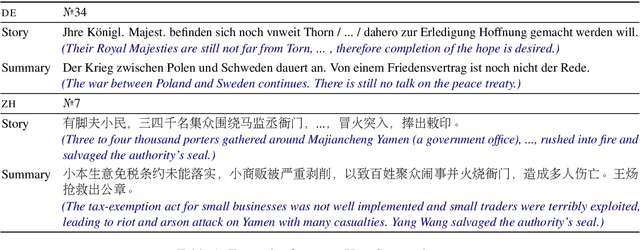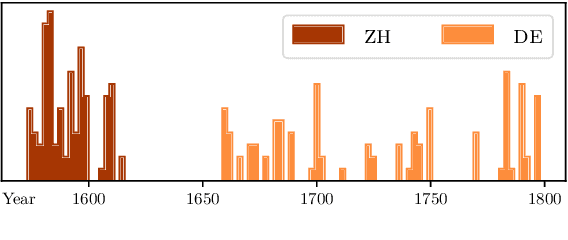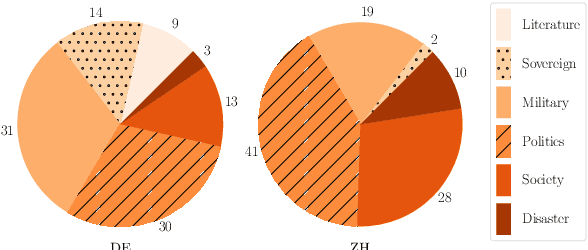Summarising Historical Text in Modern Languages
Paper and Code
Jan 27, 2021



We introduce the task of historical text summarisation, where documents in historical forms of a language are summarised in the corresponding modern language. This is a fundamentally important routine to historians and digital humanities researchers but has never been automated. We compile a high-quality gold-standard text summarisation dataset, which consists of historical German and Chinese news from hundreds of years ago summarised in modern German or Chinese. Based on cross-lingual transfer learning techniques, we propose a summarisation model that can be trained even with no cross-lingual (historical to modern) parallel data, and further benchmark it against state-of-the-art algorithms. We report automatic and human evaluations that distinguish the historic to modern language summarisation task from standard cross-lingual summarisation (i.e., modern to modern language), highlight the distinctness and value of our dataset, and demonstrate that our transfer learning approach outperforms standard cross-lingual benchmarks on this task.
 Add to Chrome
Add to Chrome Add to Firefox
Add to Firefox Add to Edge
Add to Edge